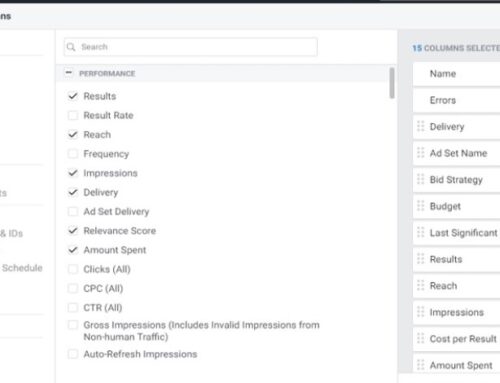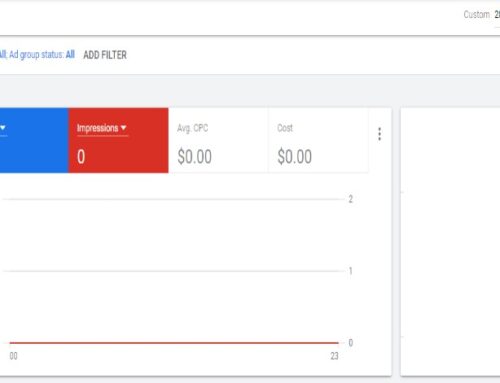Problems with small businesses using Google Ads
Google Ads is often big and scary for most businesses to embark on. For small businesses, it is a daunting task indeed. If they approach it alone, they will likely fail because they are unprepared. They spend little money in the wrong place and get burnt. Or they got great initial success, but it’s short-lived. They then figure that Google probably doesn’t work for them. But this is not true.
Most of them settle for Smart Campaigns, a watered-down version of a regular search campaign. While it’s seemingly easier to use, the overwhelming limitations that come with a Smart Campaign will not give you the control you need to scale your marketing profitably.
Our definition of a small business is any business that spends less than $10K monthly on Google Ads. Based on our experience with dozens of ad accounts in multiple different industries, here are the top 10 tips we have for small businesses who want to find success in Google Ads. Follow them and you should have a smooth and enjoyable journey marketing on Google. Let’s begin!
#Tip 1: Maximize your gains, minimize your losses.
The first tip for every small business is to maximize your gains and minimize your losses. Sounds obvious, but not many businesses know how to approach it. So let’s look at the tactics involved. First, group up the most profitable keywords, ads, ad groups, and campaigns and double down on them. On the other side, for the least profitable assets, you have to make a choice to either pause or delete them altogether.
Remember, marketing will always incur some losses. A small business cannot take too much of this. For every 100 impressions, 5 may click. For every 100 clicks, 5 may convert. A small ship does not fish the whole ocean. Scale down, maximize your gains and minimize losses.
#Tip 2: Concentrate your budget on the most profitable campaigns while scaling it slowly.
This tip adds on to the first. Now that you have hopefully identified your most profitable campaigns, you should put all your attention and resources into it. If you want to scale your budget, remember to do it slowly. You don’t want to 3 times or 5 times your budget overnight. Most likely, it will hit a cap on an acceptable ROI. For example, your 10 best keywords may only have a combined 2,000 searches a month. There’s only so much budget you can add to it until it reaches a cap or until the point of diminishing returns.
Then you will decide if you will expand the campaign or add a new one to expand your audience territory.
#Tip 3: Always use a brand campaign.
A brand campaign cannot be over-emphasized. You are statistically paying less per click on your brand terms than for a regular keyword in your industry. A brand campaign (a campaign that you create to only bid for your brand name) always brings the highest ROI and costs the least. People who are looking for your business are the most likely out of everyone to convert. Remember to check the Google Keyword Planner to see if your brand name has enough searches happening on Google.
#Tip 4: Learn from the best competitors while avoiding their mistakes.
The best way to increase your growth as a small advertiser is to copy the top guys in your field. Fire up the best players in your industry and use them as role models. Look at how they structure their website, what they say, and what they use to convert traffic. Then, model it on your website.
Study their ads (using a marketing software like SEMrush or just Google), look at what value they include in their ads, what are they saying? What are they not saying? You will improve by emulating the best in your industry and using them as a starting point. You may also come across mistakes they made, and make sure you don’t repeat them in your campaigns!
#Tip 5: Your ad groups should be tight and focused.
As a small advertiser, you should always strive to keep your campaign structure tight and focused. You don’t want to be running 50 or 100 keywords in an ad group. Most will likely be irrelevant to one another, and you will be penalized with a low overall quality score. On top of that, loosely defined ad groups affect your ad relevancy and reduce your ad click-through rate and conversion rates.
#Tip 6: Aggressively streamline click-to-close journey on your website.
Most advertisers spend all their time on their ad campaigns and forget that the customers don’t see any of these backend stuff. All they see is your ad (the end product) and your website. This point is very understated. Some advertisers put bricks and hurdles on their websites and expect their customers to cross them. Our advice is this: your conversion action should be intuned with how users usually behave online.
It doesn’t matter what fancy booking software or marketing funnel you use to capture leads. Your customers don’t care about this. They do what they want to do. If you don’t aggressively streamline the click-to-close journey, you will end up losing the prospect. Likewise, fancy things you use on your website usually don’t work. People like to take action consistent with how they have taken action online, so stick to the basics.
WhatsApp is one of the most popular forms of communication. Phone calls work as well. Lead forms are great if it does not require an urgent reply. Keep lead forms to a minimum of 3 to 4 fields for best results. If you have more than that, expect your CPA to rise as fewer people will be inclined to complete the form for you.
#Tip 7: Account expansions should be slow and controlled.
This tip shares similarity with Tip 2. You should not look to dabble in everything with a small budget because you will spread yourself too thin to be efficient. Have you ever eaten a pizza that has too thin of a crust? It has more surface area than dough! The poor pizza is being stretched out too thin. So make sure your ad account is not like a thin pizza crust. Let your campaigns start paying off before increasing your budget slowly. Then, if you find success, you can start to expand into different campaigns to target a different audience.
#Tip 8: Understand the buyers’ psyche at all times. Never deviate from it.
Understand your buyers’ psyche at all times. Those are the people who will fill up your forms, engage with your business, and refer you more businesses. You will not succeed with your ad campaigns if you don’t understand how they think and act. This can range from what you say in your ads, on your website, your path to conversion, etc.
Probably the most common mistake in advertising is self-praise. The advertiser praises himself too much that they forget about the customer. The customer really doesn’t care what you accomplished, except if it can help them accomplish their goals. If your website mentions a health benefit, but your customers are more concerned about the cost, then you should adjust your messaging.
#Tip 9: Babysit top performers and ensure they continually pay month after month. Trim off the worst performers to ensure they don’t pull down your KPIs.
Pay close attention to your top performers and ensure they have the resources to continually perform over the long term. Treat your account like a beautiful garden, regularly trim your scrubs and plants, and make sure weeds don’t grow and bad plants are replaced. Regularly check your plants’ health, ensuring they get much sun, water, and good soil.
Your ad account will thank you by producing good and consistent leads that will hopefully grow your business to the next level.
#Tip 10: Keep your account neat and organized at all times. Naming conventions should be clear and consistent throughout.
Keeping your ad accounts neat and organized is our core practice at our agency. The reason is simple—the more backlog you remove from your account, the faster you can get things done and root out problems. Unorganized accounts are like a messy drawer. They reduce the effectiveness of your account by making things hard to find and resolve. Important things get missed out and optimizations like ad testing become difficult to keep track of.
Naming conventions need to be decided when you first build out the account. Once decided, use it consistently, without fail. We advise against using acronyms and overcomplex naming structures. Use simple, descriptive words instead of acronyms whenever possible. The human mind takes an extra second to decipher an acronym. And this added up over time, resulting in mounting inefficiencies.
In Conclusion
Most small businesses don’t have the resources and money to spare for prolonged inefficient advertising. As the marketing legends Al Ries and Jack Trout say in their book Marketing Warfare, “A guerrilla reduces the size of the battleground in order to achieve a superiority of force.” This is exactly what we are teaching you in this post.
Most small businesses can succeed in Google Ads if they take these 10 tips in mind. These tips come from the years of experience we had in managing Google Ad accounts for dozens of different industries. No matter what you plan to advertise, these tips can be equally relevant to your small business’s success.





